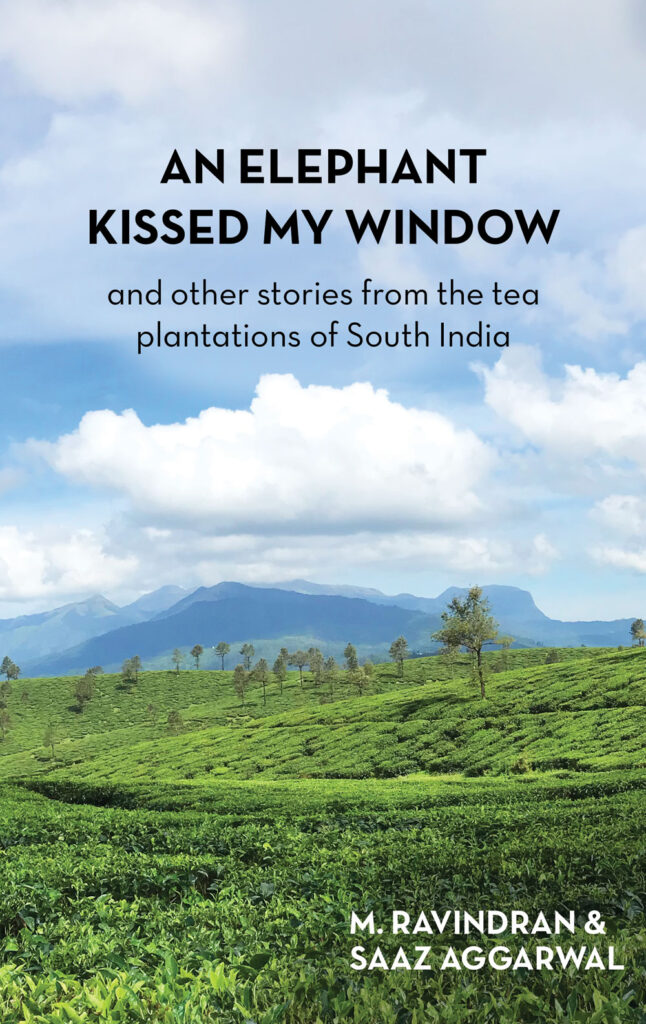
An elephant kissed my window
& other stories from the tea plantations of south india
M. Ravindran
Saaz Aggarwal
About An elephant kissed my window
This collection of stories from the tea plantations of South India is a fascinating journey back to a forgotten era. Colonial rule has ended, and the British have left behind a nation of tea producers and tea drinkers. Charming anecdotes from the transitional period are presented showcasing archaic rituals alongside the pranks of the high-spirited young men privileged to have inherited them.
This book takes you deep into pristine jungles where you will meet chevrotain, hornbills and panthers; and rural areas where people catch snakes, perform ‘black magic’, and identify thieves using fascinating traditional methods.
Read here about the Plantation Bag, which brought the latest events and fashions from ‘home’ – arriving three months after it was dispatched because that’s how long it took for things to arrive from London. There are also first-person accounts of the fire-walking and other spectacular religious ceremonies; the ceremonial Hunt at the redoubtable Ooty Club (where snooker was ‘invented’); the slow march of technology during this time – and much more.
The challenge faced by the Indian managers, who stepped into positions of power over a labour force of their own race. It was a delicate balance they trod, as the disparity between their homes and lifestyles and those of the labour was remarkable. While protecting their own interests, the new managers had to ensure that the plantations remained profitable, and also to honour the Industrial Disputes Act, 1947, the Factories Act, 1948, and the Plantation Labour Act, 1951.
Sometimes politically incorrect, sometimes verging on controversy, always thought provoking – who would ever imagine that all this could possibly go into the making of that staple of our daily lives, a simple cup of tea?
About the authors
M. Ravindran was a tea planter in South India for more than thirty years, and a former Group Manager, Tea Estates India.
Saaz Aggarwal is a writer, biographer and painter, recognized for her work in curating and archiving oral histories.
Praise for An Elephant Kissed My Window
The authors need a round of applause for this volume. The aroma of the strong-bodied South Indian teas wafts around long after the last chapter has been read.
Indrani Dutta, The Hindu
This book packs anecdotes and history marvellously well.
Aravinda Anantharaman, Mint Lounge

